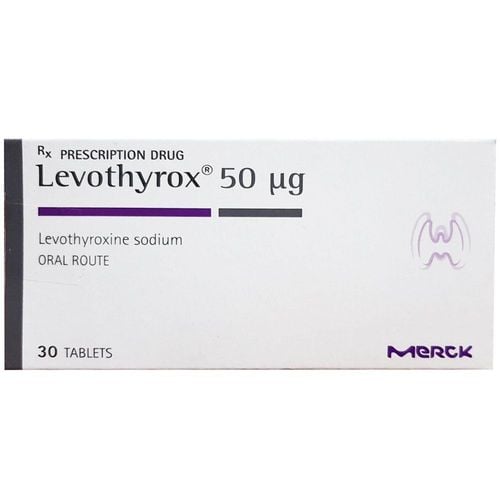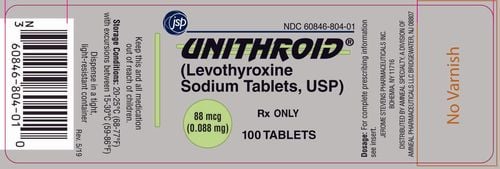This is an automatically translated article.
The article was professionally consulted by MSc Do Thi Hoang Ha - Doctor of Biochemistry, Laboratory Department - Vinmec Hai Phong International General Hospital. The doctor has 11 years of experience working in the field of clinical biochemistry.Calcitonin testing is commonly used to evaluate cases of suspected medullary thyroid cancer and ectopic thyroid peptide secretion.
1. What is Calcitonin?
Calcitonin is a polypeptide hormone secreted by thyroid parafollicular cells (C cells), metabolized in the liver and kidneys, and regulated by serum calcium levels. Calcitonin participates in the regulation of serum calcium and phosphorus levels, is an inhibitor of bone resorption to prevent bone loss at times of hypocalcaemia. When there is an increase in blood calcium levels, Calcitonin will be secreted and inhibit the absorption of calcium from the digestive tract, inhibiting the osteoclasts - the cells responsible for bone breakdown. When bone is broken down, bone calcium is released into the blood.Therefore, direct inhibition of osteoclasts by calcitonin reduces the amount of calcium released into the bloodstream, however this inhibition has been demonstrated. is short-lived) to reduce osteoclast activity. In addition, calcitonin also inhibits the activity of osteoclasts (osteocytes) that reabsorb calcium from bone and stimulates the kidneys to increase calcium excretion. These effects will oppose the effects of parathyroid hormone, thereby causing low blood calcium levels.So in summary, how is the concentration of Calcitonin in the blood controlled? The excretion of both calcitonin and parathyroid hormone is determined by the level of calcium in the blood. As blood calcium levels increase, higher amounts of calcitonin are secreted. When blood calcium levels decrease, this causes the amount of calcitonin secreted to decrease as well. Calcitonin secretion is also inhibited by the hormone somatostatin, which can also be secreted by C cells in the thyroid gland.
2. What is the Calcitonin test?
The Calcitonin test is used primarily for the evaluation of suspected medullary thyroid carcinoma. This is a condition characterized by increased excretion of Calcitonin, even when serum calcium is normal.Some cases of medullary thyroid cancer but with fasting calcitonin concentrations within the normal range should be considered to have a test to stimulate calcitonin secretion by pentagastrin or calcium infusion (because the stimulation test is considered more sensitive than the normal range). with calcitonin alone). In addition, patients with early-stage C-cell hyperplasia and/or medullary thyroid carcinoma often present a significant increase in Calcitonin levels when performing this test.
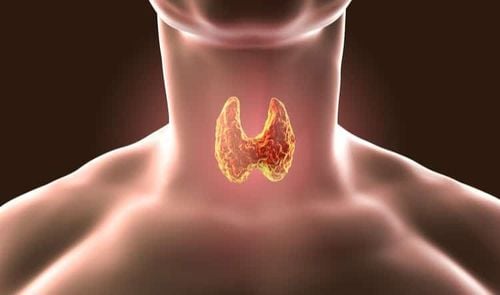
3. Indications for Calcitonin test
Calcitonin test is often ordered in cases of suspected medullary thyroid cancer. In which, there are typical symptoms as follows:There is a lump in the neck, stiff, moving when swallowing. Swollen lymph glands and painful neck area, tender lymph nodes appear, showing movement on the same side as the tumor. Sore throat or front of neck. Change or hoarseness. Difficulty swallowing , trouble swallowing or breathing . Persistent cough not caused by a cold. During the treatment of medullary thyroid cancer, the Calcitonin test will be ordered from time to time to monitor the effectiveness of treatment and detect recurrence for appropriate treatment.
Calcitonin testing is also indicated periodically for family members who have MEN 2 (Multiple Endocrine Neoplasia Type 2 - Multiple Endocrine adenoma type 2). This test will be done at an early age, to detect medullary thyroid cancer early.
In case the patient has a Calcitonin level in the suspected medullary thyroid cancer (grey zone) of 15-50 pg/mL, a high dose calcium stimulation test can be prescribed to stimulate the production of Calcitonin. rule out or diagnose thyroid cancer.
4. Clinical significance of Calcitonin . test
Calcitonin test results are an important basis for doctors to diagnose patients, specifically:Low levels of Calcitonin mean that your symptoms may not be due to thyroid cancer. marrow. A high level of Calcitonin indicates an excessive amount of Calcitonin is being produced. Significantly elevated levels of Calcitonin are a good indicator of medullary thyroid cancer.
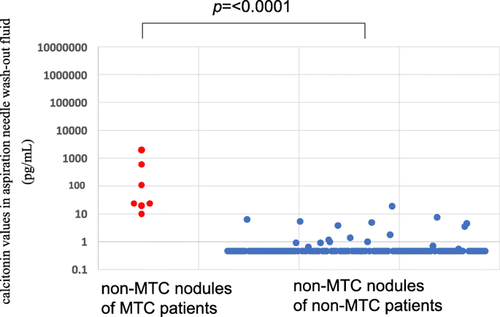
Calcitonin test is meaningful in evaluating treatment effectiveness. For example, after successful thyroidectomy, a patient's calcitonin levels often drop to very low levels. If the test shows that Calcitonin levels are only moderately reduced after surgery, it means that some of the Calcitonin-producing tissue is still present. Next, it is necessary to monitor Calcitonin levels over time, in case the level of Calcitonin has decreased after surgery and then increased again, it is very likely that medullary thyroid cancer will return.
Calcitonin test is significant in excluding or diagnosing thyroid cancer. When a patient has a calcitonin level in an area of suspected medullary thyroid cancer (15-50 pg/mL), a high-dose calcium test or a pentagastrin test should be performed to stimulate calcitonin production.
5. How to get Calcitonin test specimens?
Calcitonin test is performed on serum and the patient will be required to fast overnight (12h) before sampling.5.1. Normal Values of Calcitonin Baseline:
Female: <14 pg/mL or <14 ng/L. Male: < 19 pg/mL or < 19 ng/L. Older children: < 12 pg/mL in males; < 5 pg/mL in Females. Infants and young children: < 40 pg/mL in infants < 6 months of age ; < 15 pg/mL in children 6 months to 3 years of age. After calcium infusion during stimulation test (using calcium at a dose of 2.4mg/kg):
Female: < 130 pg/mL or < 130 ng/L. Men: < 190 pg/mL or < 190 ng/L. After injecting pentagastrin when doing a stimulus test (using pentagastrin at a dose of 0.5 μg/kg):
Female: < 35 pg/mL or < 35 ng/L. Men: <110 pg/mL or <110 ng/L.
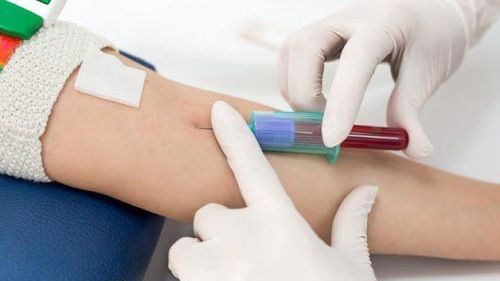
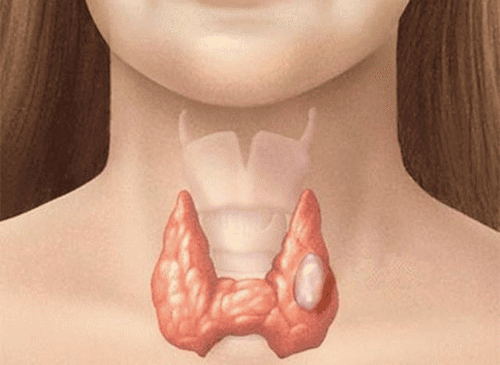
Calcitonin testing is an important procedure, especially for patients with suspected medullary thyroid cancer. Therefore, patients need to go to medical facilities to be examined and tested when there are suspicious signs.
Please dial HOTLINE for more information or register for an appointment HERE. Download MyVinmec app to make appointments faster and to manage your bookings easily.





